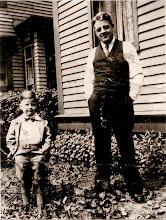My rule is this: If there is no love in it, end it.
Let's use the example of a business relationship: How does love come into business? you ask. Okay, substitute the term "goodness" for "love", since goodness is a form of love.
You are in a business relationship. Over some months, you realize that your associate has a behaviour that is somewhat self-serving. Do you end the relationship?
...what if this self-serving behaviour clearly feeds something emotionally undeveloped in them?
...what if others or yourself are getting hurt?
...what if, having spoken to your associate regarding this behaviour, having pointed out it is hurtful to yourself or others, the associate still persists. Just when should you end the relationship?
We all want to be liked and, when it comes to a spouse or family member, a decision to disengage can be difficult. So how does one know when to end it? As my mother [and probably your mother] always said, "It's all fun and games, until someone loses an eye." Yet, it is not always necessary to disengage or end a relationship, even if someone is getting hurt. In fact, being patient while another person processes is a normal part of human relationships. We should be as patient with others in this regard as we hope others will be with our own failings. It is inevitable that even those who love us will hurt us. Just because we identify the other's behaviour as self-serving isn't necessarily a call for action.
It's the intent behind the behaviour and the resulting effect that need to be discerned, and it is at this point I apply my rule. I absolutely must disengage as soon as I realize that there is no "goodness" to be found anywhere in what is going on: the other person is engaging in a behaviour which has no "love" in it, nor any hope of love. Even if I were willing to put up with whatever is going on, I must not participate and I must disengage. By applying my rule I find I am able to make a decision without too much difficulty.
One thing is certain: No amount of love you bring to a relationship will have any effect whatsoever if there is no love there, excepting your own.





